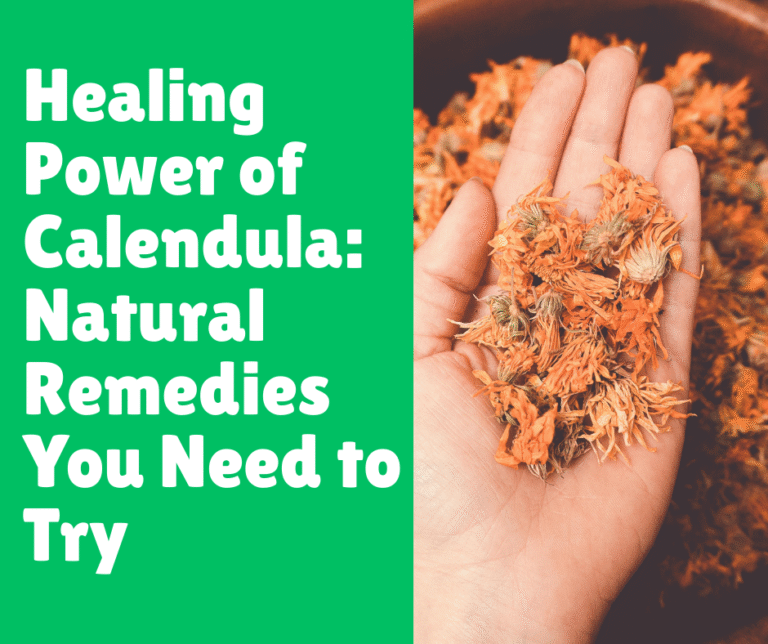Natural Remedies to Soothe and Stop a Runny Nose Quickly
Post Disclaimer
Content on this site is for educational use only and not a substitute for medical advice. Herbal remedies are based on traditional knowledge and not medical recommendations. Please consult a healthcare professional before trying any herb. We do not assume responsibility for any outcomes or adverse effects resulting from the use of information provided here.
A runny nose can be one of the most annoying symptoms to deal with, especially when it seems to linger for days. Whether it’s from a cold, allergies, or even the dry winter air, that constant drip can make it hard to focus on anything else.
While over-the-counter medications are often a quick fix, many people turn to more natural remedies to alleviate their symptoms. One such remedy that has gained popularity over the years is the use of essential oils.
Essential oils have long been celebrated for their therapeutic properties, and certain oils can help relieve a runny nose by soothing irritated nasal passages, reducing inflammation, and even clearing congestion. But with so many options available, how do you know which ones actually work?
In this post, I’ll walk you through the best essential oils for a runny nose, how to use them, and how they can make a real difference.
Along the way, I’ll share some personal tips and insights based on my experience with these oils. Let’s dive in and explore the natural path to relief.
The Power of Essential Oils for a Runny Nose
Essential oils are more than just pleasant scents. These concentrated plant extracts contain powerful compounds that can have a profound impact on your health.
When it comes to a runny nose, certain oils have the ability to soothe the nasal passages, reduce inflammation, and even clear out mucus.
Before we get into the specifics of which oils work best, let’s break down why they’re so effective. Essential oils often contain active compounds that have antiseptic, anti-inflammatory, or decongestant properties.
For instance, eucalyptus oil is well-known for its ability to open up the airways, while peppermint oil has a cooling effect that can reduce nasal irritation.
The Best Essential Oils for a Runny Nose
Here’s a breakdown of the top essential oils you can use to help clear up that pesky runny nose. Each oil has its unique benefits, and I’ve included my personal recommendations based on their effectiveness.
Eucalyptus Oil
Eucalyptus oil is one of the most popular essential oils for relieving nasal congestion. Its main active compound, eucalyptol, helps to open up the airways and has a cooling effect that can clear out mucus. It’s especially effective if you’re dealing with a runny nose caused by a cold.
- How it helps: Reduces inflammation, clears nasal passages, and helps with sinus pressure.
- How to use: Add a few drops to a diffuser or steam inhalation. You can also dilute it with a carrier oil and apply it to your chest or the back of your neck for additional relief.
Peppermint Oil
Peppermint oil is another powerhouse when it comes to easing a runny nose. It contains menthol, which not only gives it a refreshing, cooling effect but also helps to open up your nasal passages. It’s particularly useful for soothing a stuffy nose and relieving irritation caused by constant sniffing.
- How it helps: Relieves nasal irritation, helps with congestion, and provides a cooling sensation.
- How to use: Use it in a diffuser or apply diluted peppermint oil to your temples and chest. It’s best not to apply it directly inside your nose as it may cause irritation.
Tea Tree Oil
Tea tree oil is known for its antiseptic and antibacterial properties, making it a great choice for combatting infections that can lead to a runny nose. While it may not have the immediate decongestant effects of eucalyptus or peppermint, it helps to address the underlying cause of your symptoms.
- How it helps: Acts as an antimicrobial, reduces inflammation, and may help with sinus infections.
- How to use: Diffuse it in the air or add it to a steam inhalation. You can also mix it with a carrier oil and apply it to your chest for extra relief.
Lavender Oil
While lavender oil may be best known for promoting relaxation, it can also be quite effective when dealing with a runny nose. Its soothing properties help reduce inflammation, and it can aid in better sleep when you’re feeling under the weather.
- How it helps: Reduces inflammation and promotes relaxation, which can help you sleep better when you’re congested.
- How to use: Diffuse in your bedroom, add a few drops to a warm bath, or apply diluted oil to your chest before bedtime.
Lemon Oil
Lemon oil is bright, refreshing, and has natural antibacterial properties. It helps to clear out mucus, reduce inflammation, and support your immune system, making it ideal for a runny nose caused by allergies or a viral infection.
- How it helps: Clears mucus, reduces inflammation, and supports the immune system.
- How to use: Diffuse the oil, add a few drops to your water (make sure it’s food-grade), or apply diluted lemon oil to your chest.
How to Use Essential Oils Safely
While essential oils are effective, they must be used correctly to avoid irritation or other unwanted effects. Below, I’ve outlined some tips to ensure safe use.
Dilution is Key
Essential oils are concentrated and can cause irritation if applied directly to the skin. Always dilute them with a carrier oil (like coconut oil or jojoba oil) before applying topically. A general rule of thumb is to use 3-5 drops of essential oil per teaspoon of carrier oil.
Steam Inhalation
One of the best ways to use essential oils for a runny nose is through steam inhalation. This allows the oils to enter your nasal passages directly. Here’s how:
- Boil a pot of water and pour it into a heat-resistant bowl.
- Add 2-3 drops of your chosen essential oil (eucalyptus or peppermint work best).
- Place your face over the bowl (at a safe distance) and cover your head with a towel.
- Breathe deeply for 5-10 minutes.
Diffusing
If you don’t want to deal with steam, diffusing essential oils is a more gentle and consistent way to clear your sinuses. Use a diffuser to release the oils into the air for several hours, allowing them to work their magic as you go about your day.
A Table of Essential Oils for Runny Nose Relief
Here’s a handy table summarizing the essential oils mentioned and their primary benefits:
| Essential Oil | Main Benefit | How to Use |
| Eucalyptus Oil | Clears nasal passages, reduces inflammation | Diffuse, steam inhalation, topical application |
| Peppermint Oil | Relieves nasal irritation, cools the body | Diffuse, topical application |
| Tea Tree Oil | Antimicrobial, reduces inflammation | Diffuse, steam inhalation, topical application |
| Lavender Oil | Soothes inflammation, promotes relaxation | Diffuse, topical application |
| Lemon Oil | Clears mucus, supports immunity | Diffuse, steam inhalation, topical application |
Common Mistakes to Avoid When Using Essential Oils for a Runny Nose
While essential oils can be incredibly helpful, there are some common mistakes people make that can hinder their effectiveness or even cause harm.
Using Too Much Oil
Essential oils are highly concentrated. Using more than the recommended amount won’t make them work better and can lead to irritation. Stick to a few drops, and always dilute when applying topically.
Not Diluting Properly
Always dilute essential oils with a carrier oil before applying them to your skin. Failure to do so can cause skin irritation, rashes, or even burns in some cases.
Overlooking Potential Allergies
Before using an essential oil for the first time, do a patch test on your skin to check for any allergic reactions. Apply a small amount of diluted oil to a patch of skin and wait 24 hours to see if there’s any redness or irritation.
Expecting Immediate Results
Essential oils work best when used consistently over time. Don’t expect immediate relief after just one application. Be patient and give your body time to respond to the oils.
Conclusion: The Power of Nature for Your Runny Nose
A runny nose can be a frustrating symptom, but essential oils offer a natural, effective solution to help alleviate the discomfort. From eucalyptus and peppermint to lavender and lemon, each oil has unique properties that can clear your nasal passages, reduce inflammation, and help you feel better faster.
Remember, when using essential oils, always dilute them properly, and use them consistently for the best results. Whether you’re using them in a diffuser, as part of a steam inhalation, or applying them topically, these oils can provide relief without relying on harsh chemicals.
If you’re dealing with a runny nose, give these oils a try and see how they work for you. I’d love to hear your experiences drop a comment below and let me know which oils have worked best for you. Share this post with a friend who might benefit from natural remedies too!
FAQs
Can I use essential oils if I’m pregnant?
While some essential oils are safe during pregnancy, others should be avoided. Always consult your healthcare provider before using essential oils while pregnant.
Can I use essential oils for children?
Some essential oils are safe for children, but they must be diluted even more than for adults. Eucalyptus and peppermint should be used with caution and generally avoided for young children.
How often should I use essential oils for a runny nose?
You can use essential oils 2-3 times a day for best results. Be sure to give your body time to respond and monitor for any reactions.
Are there any side effects of using essential oils?
Side effects are rare but can include skin irritation, allergic reactions, or headaches. Always dilute your oils and do a patch test before applying them to large areas of your skin.








